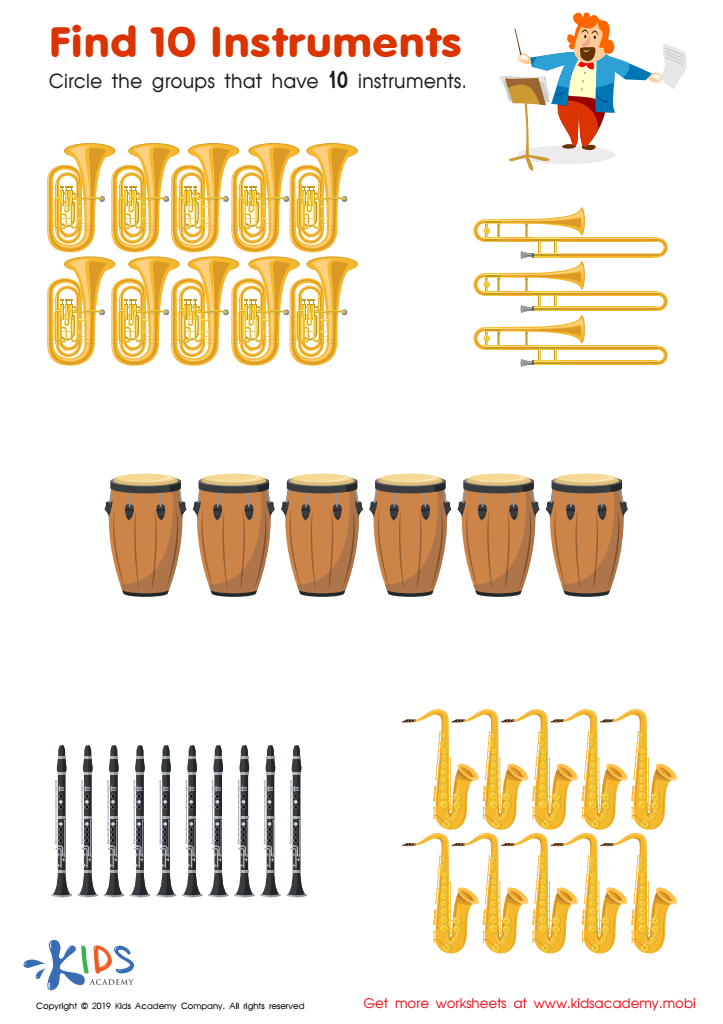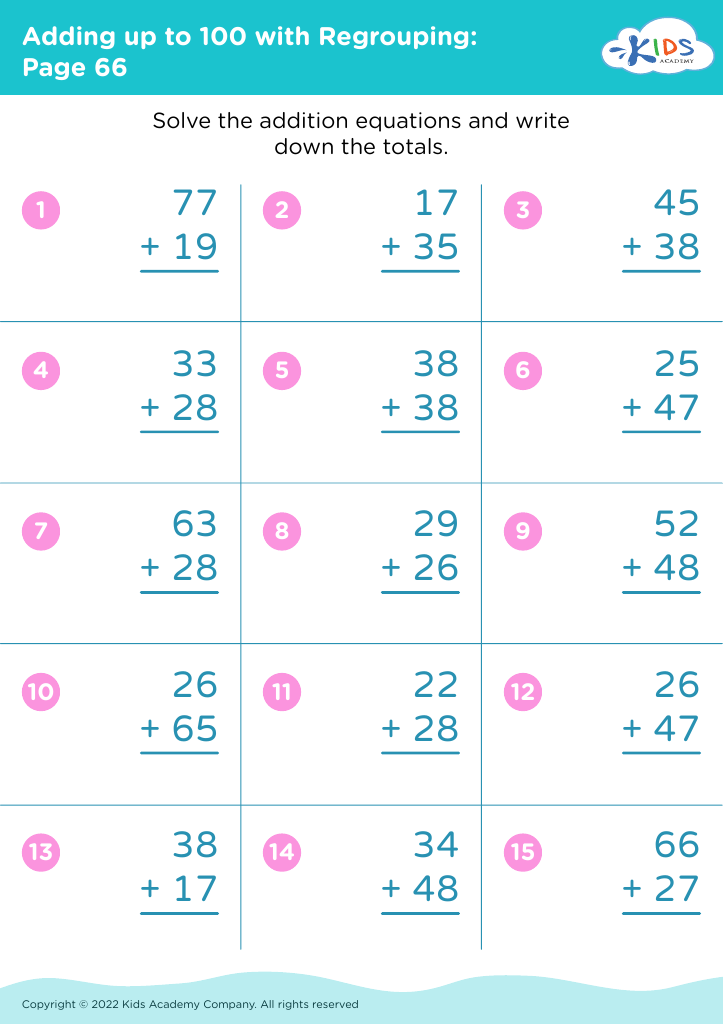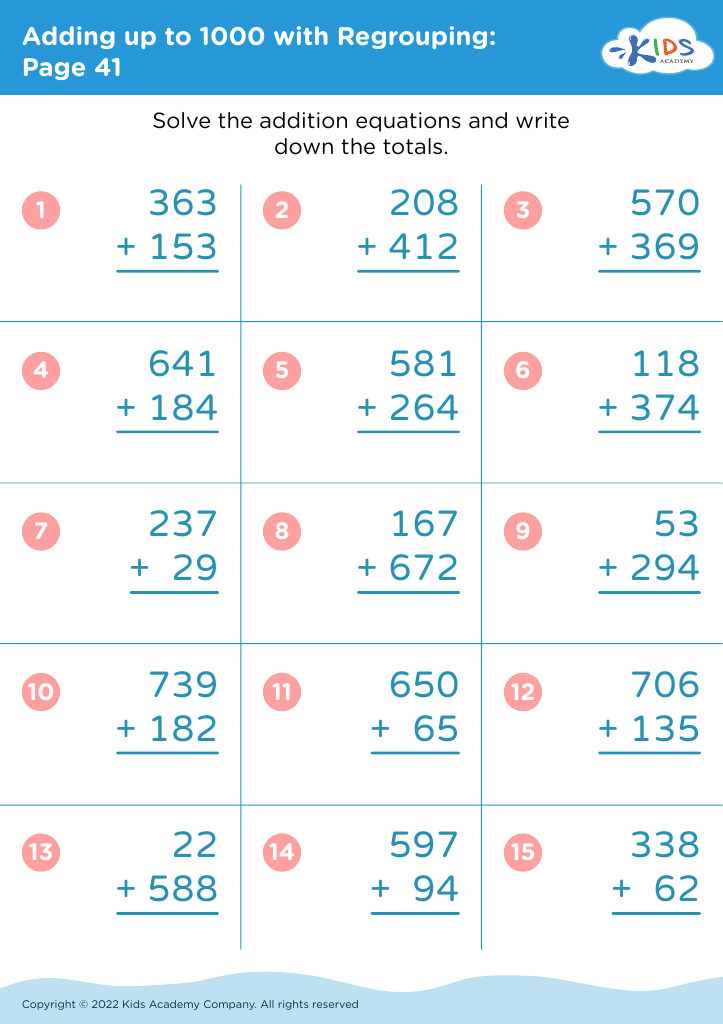Improve vocabulary Math Worksheets for Ages 4-7
3 filtered results
-
From - To
Boost your child's mathematical vocabulary with our expertly designed worksheets for ages 4-7! At Kids Academy, our printables are crafted to develop essential math terms and concepts through engaging and colorful activities. These worksheets ensure young learners enhance their understanding while having fun. Perfect for home or classroom use, they cover various topics, including counting, shapes, and basic operations, facilitating a solid mathematical foundation. Download today and give your child the words to succeed in math!


Find 10 Instruments Worksheet
Improving vocabulary in math for children ages 4-7 is crucial for their overall academic development and foundational understanding of mathematical concepts. Early math vocabulary lays the groundwork for more complex problem-solving and critical thinking skills vital for future learning.
Understanding math terms like "more," "less," "equal," "add," and "subtract" helps young children make sense of early arithmetic operations. Without a firm grasp of basic vocabulary, children may struggle with concepts as they advance, leading to frustration and a lack of confidence in their abilities. Moreover, math vocabulary helps children to articulate their thought processes clearly which is essential for both collaborative learning and individual problem-solving.
Additionally, math vocabulary is often linked with literacy. By improving their math-related language skills, children are simultaneously enhancing their reading and comprehension abilities. They learn to follow instructions more accurately and develop the capacity to describe their reasoning, laying a strong foundation for both math and overall communication skills in later years.
Teachers and parents can encourage this development through engaging activities, such as math storybooks, interactive games, and everyday discussions using math terms. These efforts show that math isn't just about numbers; it's about understanding and using language to explain how we make sense of the world quantitatively. This early investment in vocabulary helps ensure that children build a sturdy base for lifelong learning.



 Assign to My Students
Assign to My Students




















